Nursing Education: A Self-Assessment of Community Teaching Skills
VerifiedAdded on 2023/06/14
|6
|803
|253
Report
AI Summary
This report presents a self-assessment of community teaching skills within a nursing context. It emphasizes the importance of self-evaluation for identifying strengths and weaknesses in the role of a nurse educator. The Johari Window tool was utilized to gain insights into self-awareness, communication skills, and interpersonal relationships, revealing adaptability, confidence, and knowledge as key strengths. The assessment also acknowledges nervousness when interacting with large audiences and difficulty gaining trust as areas for improvement. The report further discusses the impact of an education program on community members, highlighting challenges related to language barriers and successes in raising awareness. It also includes a discussion of the student's experiences as both a teacher and a learner in a community setting. Desklib provides access to similar solved assignments and past papers for students.
1 out of 6
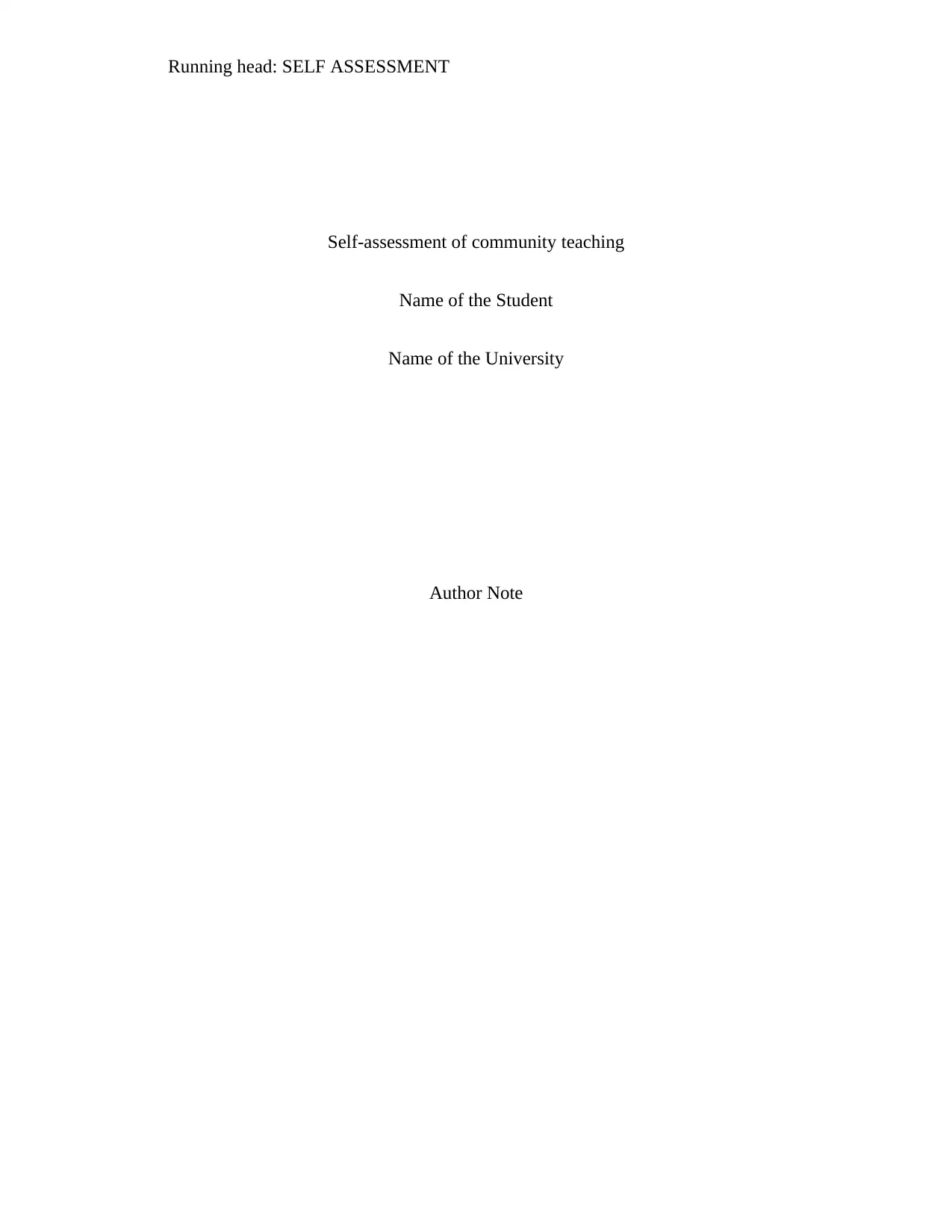
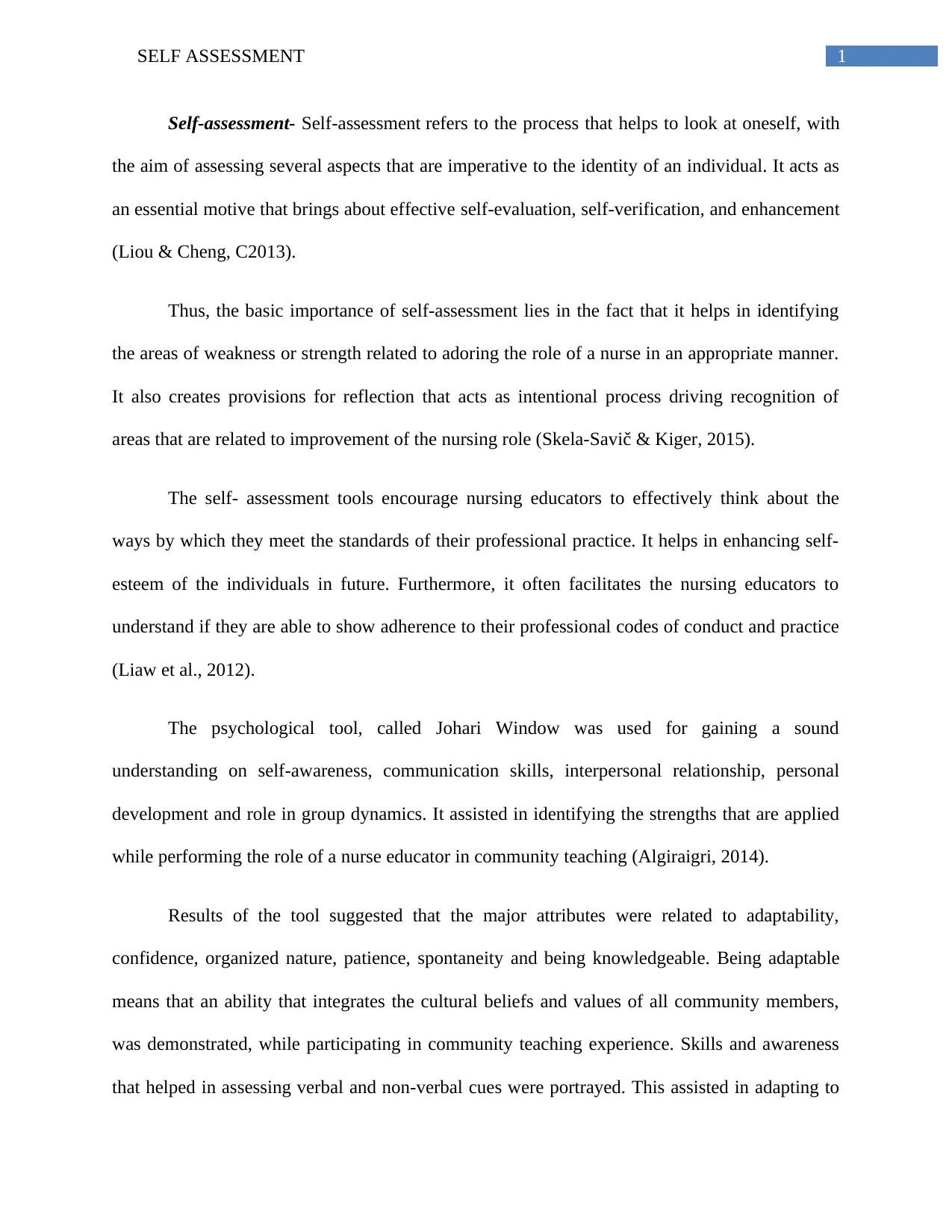
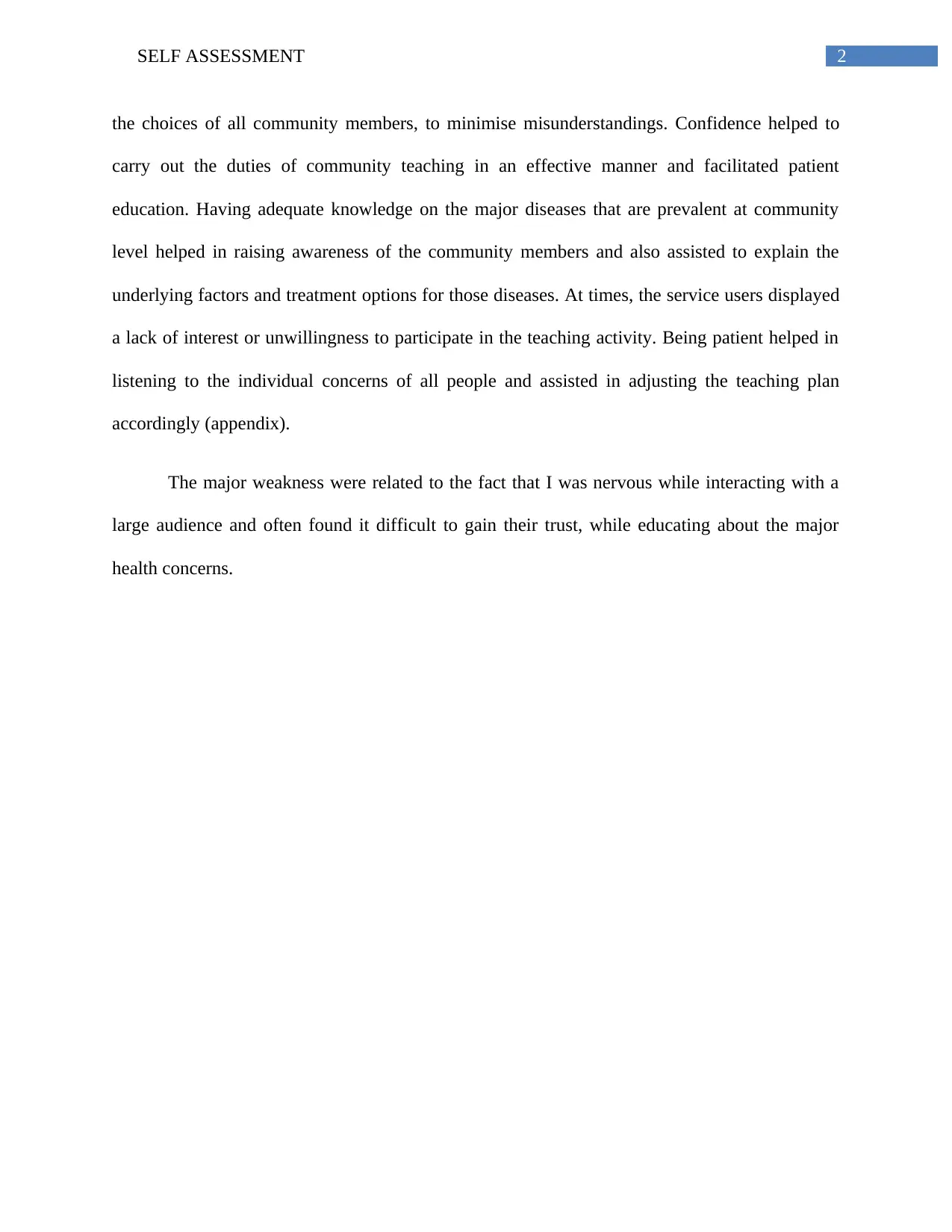

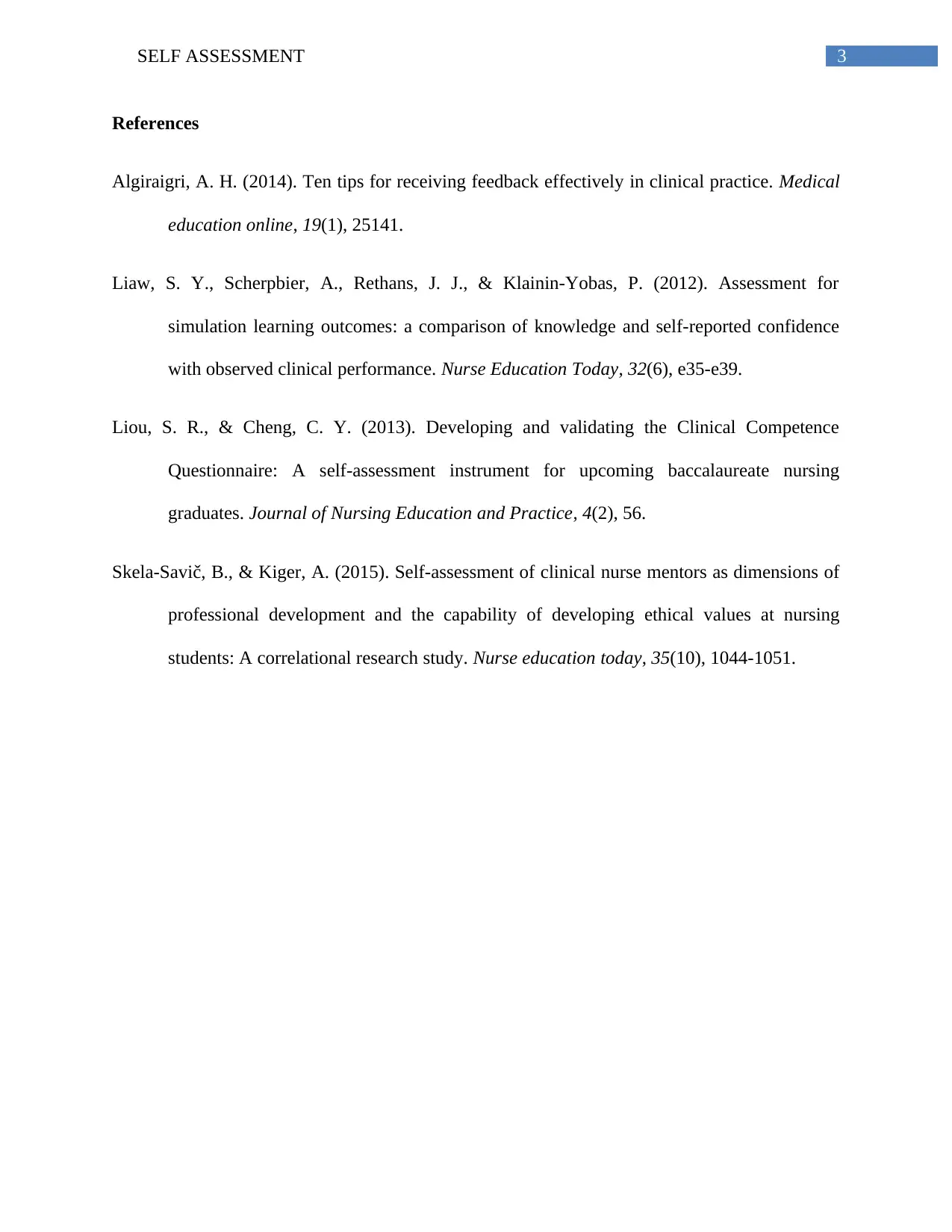
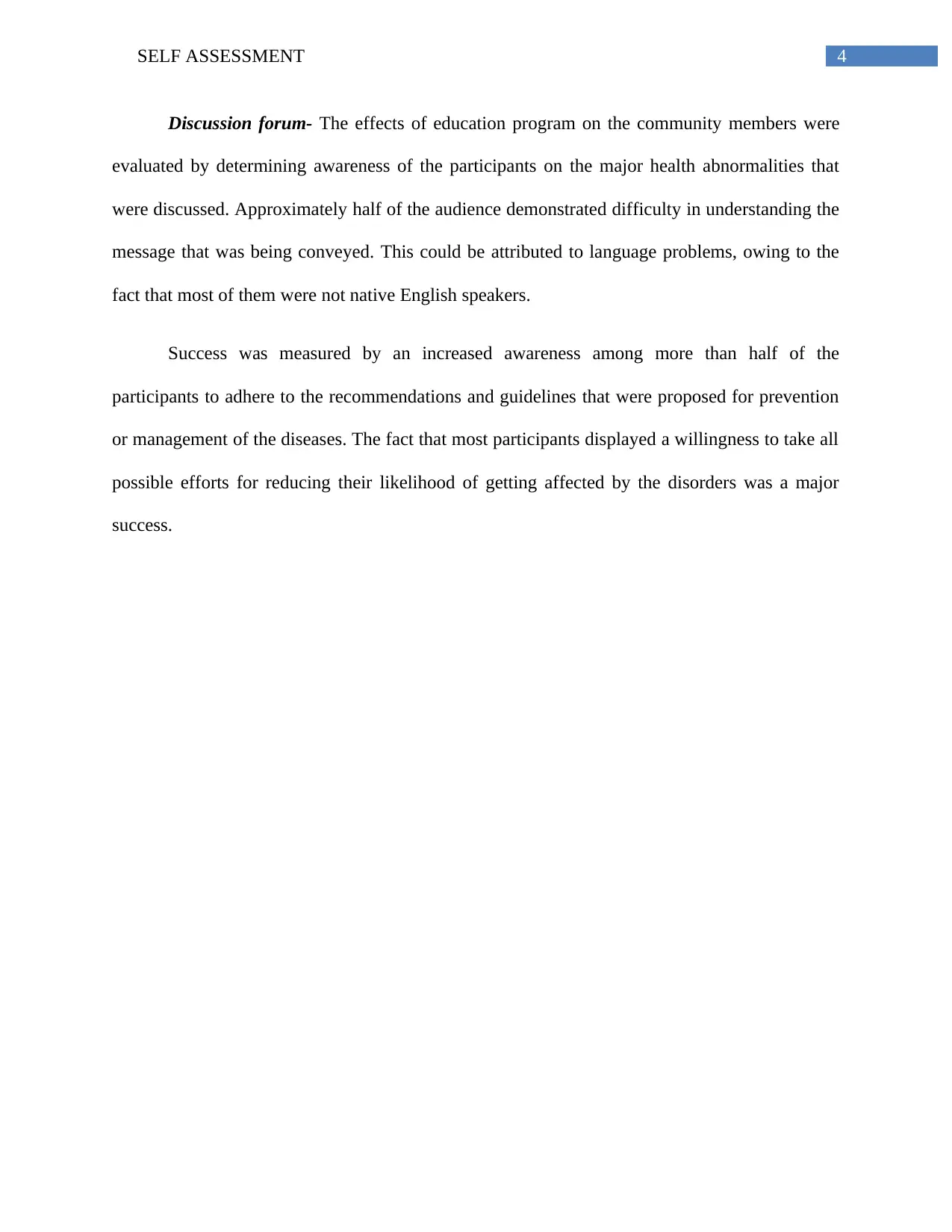
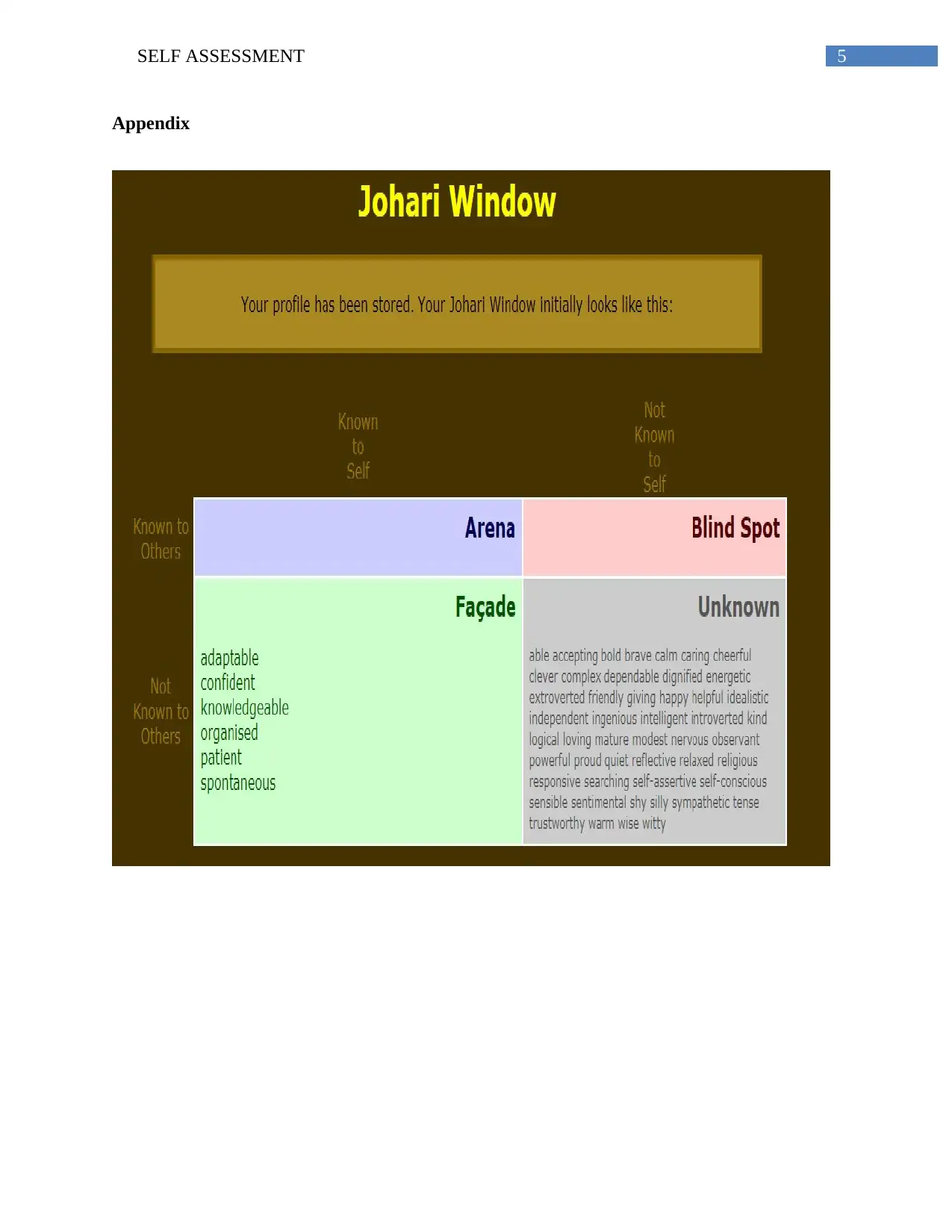






![[object Object]](/_next/static/media/star-bottom.7253800d.svg)